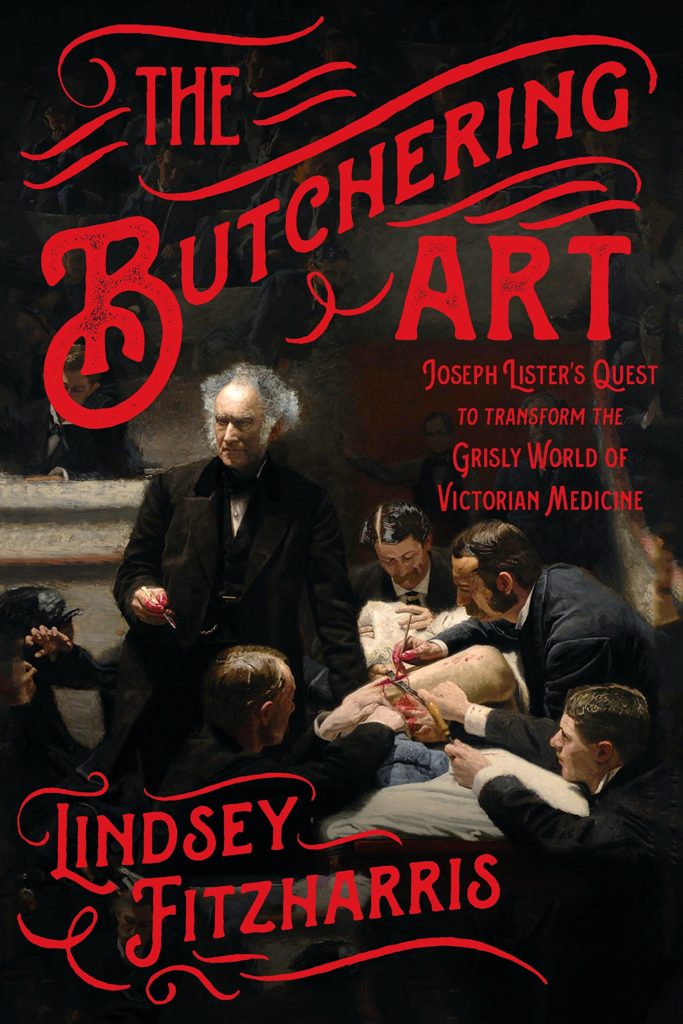Peter Brindley contemplates how Victorian medicine and its failings holds up a mirror to medicine now
Lazy winter days are ideal for remaining motionless on the couch. Accordingly, they are also perfect for introducing the kids to old movies. The goal is to share rituals and memories, without the swearing and sexual content of today’s fare. However, with this trip down memory lane comes the shock and embarrassment of what we once regarded as normal and unchangeable. Whether it is the racism of Breakfast at Tiffany’s, the sexism of James Bond, or the cockpit humor in Airplane, there is plenty of space on the modern sofa for old fashioned awkwardness. Perhaps the best thing about the old days is merely that we weren’t old. Regardless, in the same way, soon enough our cherished medical ideas and ideals will be just as anachronistic. This truth is offered both as a warning and a call to arms.
 Winter nights also need a darn good book. The Butchering Art by Lindsey Fitzharris is the story of Joseph Lister and Victorian medicine. It has all the ingredients of a good film: human interest, triumph over adversity, and gore—lots of gore. You will recognise the medical profession in all its magnificence: sacrifice, tenacity, and bravery. You may also squirm as you recognise petty politics, intransigence, and churlish mockery. Once you appreciate Lister’s pioneering work in antisepsis you may even agree that surgeons can be heroes—just don’t tell them. Nowadays, antisepsis seems self-evident and we are all unquestioning disciples. The danger is that we fail to recognise our erstwhile selves because we now wear pious yellow gowns rather than blood-splattered aprons.
Winter nights also need a darn good book. The Butchering Art by Lindsey Fitzharris is the story of Joseph Lister and Victorian medicine. It has all the ingredients of a good film: human interest, triumph over adversity, and gore—lots of gore. You will recognise the medical profession in all its magnificence: sacrifice, tenacity, and bravery. You may also squirm as you recognise petty politics, intransigence, and churlish mockery. Once you appreciate Lister’s pioneering work in antisepsis you may even agree that surgeons can be heroes—just don’t tell them. Nowadays, antisepsis seems self-evident and we are all unquestioning disciples. The danger is that we fail to recognise our erstwhile selves because we now wear pious yellow gowns rather than blood-splattered aprons.
Most of us have heard medicine’s inconvenient truth: 50% of what you learn will be wrong, or inaccurate, within five years. Sadly, we never know which 50%, and we assume it only applies to others. Moreover, humility and doubt are rarely displayed at medical meetings. Little appears to have changed from Queen Victoria’s day: we pretend to be all knowing, and we relish being all critical.
Mercifully, the public no longer view germ theory as “fake news,” but a concerning number think that vaccines are bunk. Collectively, we seem hell bent on entering the post-antibiotic era and we are entirely ill equipped to manage spiralling financial costs and insatiable public expectations. We may need Lister’s prudence and restraint more than we realise. As stated in 1849 by a French novelist, “The more things change, the more they stay the same.”
One hundred and fifty years ago patients lived with—and frequently died with—the big four in-hospital infections: erysipelas, septicemia, pyemia, and gangrene. We can debate the four horsemen of the modern medical apocalypse, but might we suggest medical errors, resource constraints, patient frailty, and provider burnout. In Victorian times, mortality actually increased after the discovery of ether. This was because medical men—and they were men—became more aggressive. Lister was always careful, conservative, and present: pre-op, peri-op, post-op. Perhaps, some ideas should never go out of style.
Lister was also humble, compassionate, and curious. Fortunately, the system never beat those qualities out of him. As a student he was exposed to surgeon showmen who would amputate in under a minute; even if testicles might be removed too. Lister was so horrified by the screaming and bravado that he considered ministering in the Quaker church. Importantly, his crisis of faith made him a better person, not a weaker doctor. He subsequently dedicated 40 years to ensuring that “care” was central to “patient care” and “theatre” was removed from the operating room.
Lister was clearly a great individual, and one who led by example and force of will. As such, we may speciously assume that culture and history is merely the result of individuals. However, mores and memes and culture are likely more complex. After all, along with microbes, societal progress (or regression) can be contagious too. Certainly, we all deserve to relax on the settee this winter. Regardless of whether you wish to share an old movie or discover a new book, do still take a moment to reflect: which of your ideas are likely to be ridiculed, and which might stand the test of time.
Peter Brindley, professor of critical care medicine, anesthesiology and pain medicine, and health ethics, University of Alberta, Edmonton, Canada. @docpgb
Competing interests: None declared.
Acknowledgement: With appropriate credit to the singer, Meatloaf. https://www.azlyrics.com/lyrics/meatloaf/thefutureaintwhatitusedtobe.html
